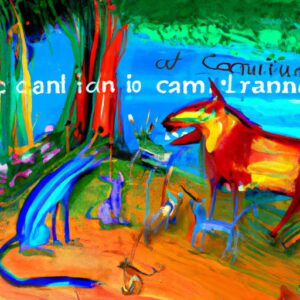What do iniziare and cominciare mean in Italian?
To say to start or to begin in Italian, we can use two verbs: iniziare and cominciare. These two verbs are interchangeable and can be used in all kinds of contexts.
They can both be used with:
- A verb in the infinitive form, using the preposition a.
- A direct object noun without the use of a preposition.
Have a look at the examples below:
Iniziare o cominciare a + infinitive verb
Ho iniziato a leggere un libro in Italiano.
I started reading a book in Italian.
Ho cominciato a fare yoga tutte le mattine.
I started doing yoga every morning.
Iniziare o cominciare + noun
Ieri ho iniziato il corso.
I started the course yesterday.
Hai già cominciato la scuola?
Have you started school yet?
How to use continuare?
The verb continuare, to continue or keep doing, behaves very similarly to the two verbs we’ve just learned.
It can be used with the preposition a and a verb in the infinitive, or just followed by a direct object.
Continuare a + infinitive verb
Continua a leggere, mi piace la tua voce.
Continue reading, I like your voice.
Continuo ad inciampare mentre cammino.
I keep tripping over while walking.
Continuare + noun
Ha deciso di non continuare gli studi.
She decided not to continue with her studies.
Continuerò il viaggio senza di te.
I will continue the trip without you.
How to use finire?
In Italian, to say to finish we use the word finire. This verb, however, takes the preposition di followed by the infinitive form of a verb.
Hai finito di lavare i piatti?
Have you finished washing up the dishes?
Abbiamo appena finito di studiare, usciamo?
We just finished studying, shall we go out?
As with all the other verbs we’ve seen, it can also be used with a direct object noun:
Ho già finito il libro!
I have already finished the book.
Tu hai finito l’università?
Have you finished university?
Iniziare and finire: essere or avere?
The Italian verbs iniziare, cominciare and finire can use both the verb essere (to be) and avere (to have) as an auxiliary or helping verb.
As we’ve seen in the examples above, we use avere with the prepositions a and di and when there is a direct object.
Ho iniziato a fare yoga.
I started doing yoga.
Hai cominciato il libro?
Have you started the book?
Hanno finito di mangiare.
They finished eating.
Avete finito la scuola?
Have you finished school?
On the other hand, we will have to use essere when there is no preposition or direct object. In this case, the verbs are intransitive.
Have a look at the examples:
Le vacanze sono cominciate la settimana scorsa.
Holidays started last week.
Veloce, il film è già iniziato.
Hurry up, the film has already started.
La scuola è finita ieri!
School finished yesterday!









